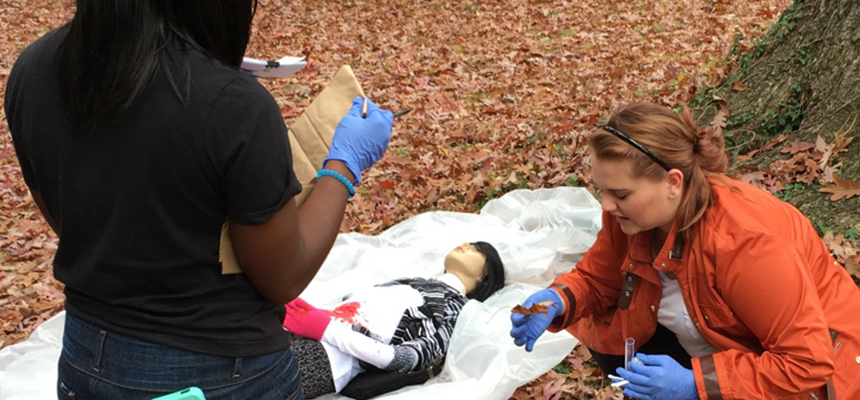Criminology and social deviance

Criminology and social deviance vs. Criminal Justice
A major in Criminology and social deviance is distinct from criminal justice because its focus is on uncovering the root causes and consequences of crime, while degrees in criminal justice study the three main elements of the justice system: policing, courts, and corrections. With its theoretical focus, criminology and social deviance examines patterns related to deviant and criminal behavior, offenders, and victims. Criminology and social deviance students also learn about the justice system, but from a sociological perspective with a critical eye on the issues of how justice is carried out and how the system can be improved.
Features of the Criminology and social deviance Program
- Research – opportunities to actively design and implement research projects
- Applied Field Experience – field placement provides real, on-the-job experience
- Professional Development – emphasis on leadership, communication, and interpersonal valued by employers
- Social Responsibility – special focus on women and trauma with opportunities to work directly with those populations
The Clothesline Project
The clothesline project gives criminology and social deviance majors an opportunity to visit a correctional facility on several occasions to work with residents and listen to their experiences of survivorship and victimization. The stories are then shared by creating t-shirts which are displayed on a clothesline on the NDMU campus.
Criminology and social deviance Minors
At NDMU, our strength is our ability to weave your unique interests into your individual education. Adding a minor to your degree is a great way to craft an experience that aligns to your aspirations.
Criminology and social deviance
The Minor in Criminology and social deviance provides a basic understanding of criminal behavior and the criminal justice system today. It prepares for careers that include policymaking, community action, social research, criminal justice careers, federal service careers, and social services.
Majors that often add a criminology and social deviance minor include Political Science, Chemistry, Computer Information Systems, and Psychology.
Sociology
The Minor in Sociology examines the inner workings of social institutions, patterns of social relationships, and the collective behavior of organized groups to better understand society and the roles we play. Courses explore social issues including crime, education, poverty, immigration, institutional discrimination, and prejudice.
Sociology is a versatile minor that could be applied to any number of majors. Popular majors that often add a sociology minor include Art, Business, Education, Communication Arts, Criminology and social deviance, Philosophy, Religious Studies, Psychology, and Political Science.
Research
One of the hallmarks of the rich educational environment at NDMU is the opportunity to participate in research in your field of interest. Our annual Nancy Kreiter Student Research Day provides the perfect forum to showcase your hard work with a formal research presentation to the NDMU community.
Practicum Experience
Criminology and social deviance majors complete a supervised field experience in their fourth year. More than an internship, the practicum experience integrates theory, science, and practice.
Practicum placements are selected based on learning objectives to prepare you for graduate school or entry level employment.
Examples of Field Placements
- National Security Agency
- Baltimore State’s Attorney’s Office
- House of Ruth
- Sheppard Pratt
- Family League of Baltimore
- Bureau of Alcohol, Tobacco, Firearms and Explosives
- Maryland State Police
- Department of Juvenile Services
- Baltimore Office of the Public Defender
- Baltimore Child Abuse Center
Criminology Careers
The Criminology and social deviance major prepares graduates to pursue a wide variety of career paths in law, corrections, law enforcement, victim advocacy, child welfare, and juvenile justice.
Employment Opportunities
- Nonprofit Agencies – Social Worker, Policy Advocate, Research Analyst
- State & Federal Courts – Victim Advocate, Lawyer, Judiciary Clerk, Court Bailiff
- Corrections Departments – Correctional, Probation, or Parole Officer
- Law Enforcement Agencies – State or Local Police, Sheriff's Deputy, School Resource Officer, Detective
- Juvenile Justice Agencies – Caseworker, Juvenile Probation, Parole or Corrections Officer


